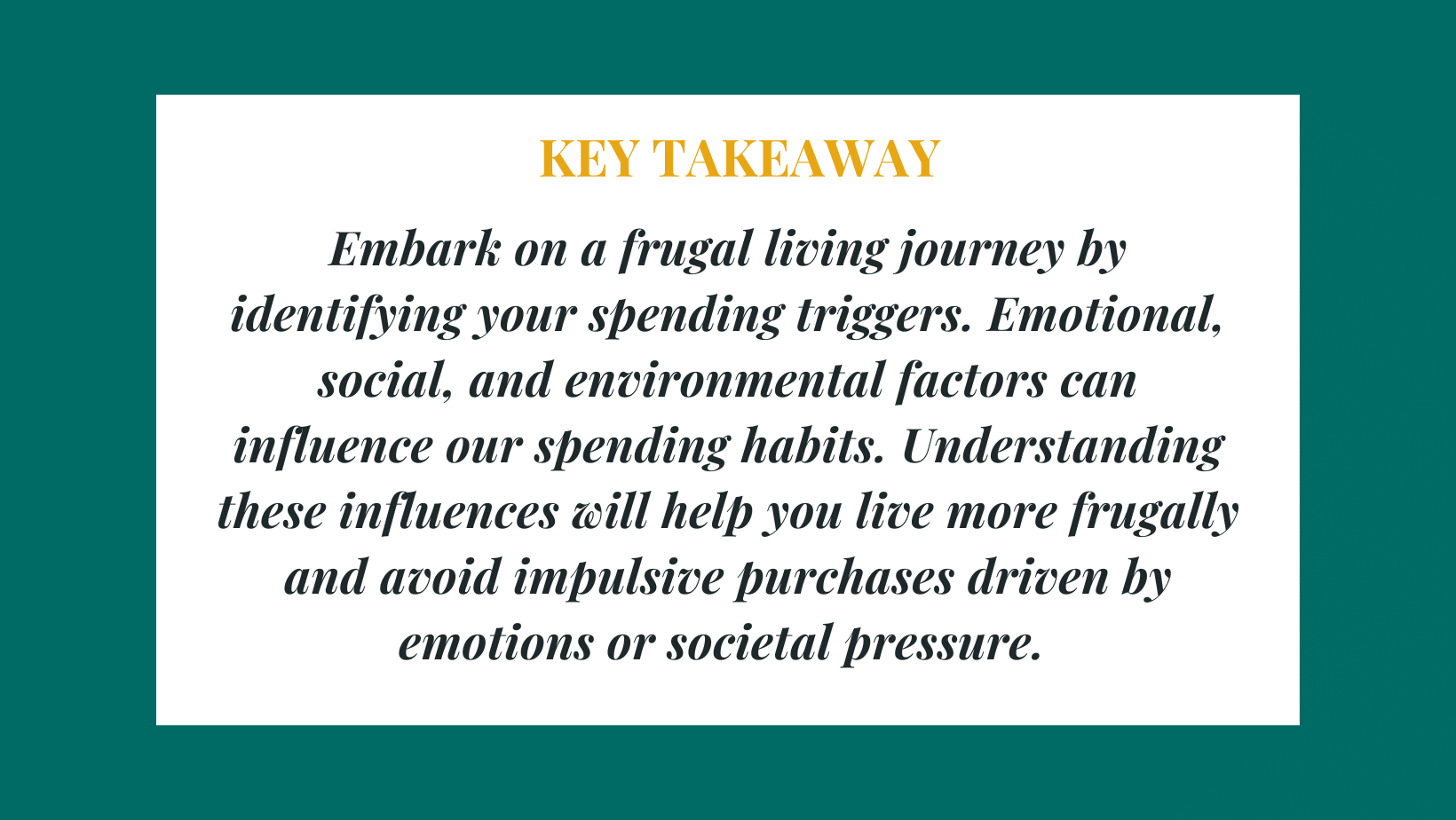Frugal Living is not a walk in the park.
Truth be told, when it comes to tightening the purse strings, most people’s #1 struggle is…
You guessed it. Frugal living!
The majority are inexperienced about how to do it effectively. This very challenge separates those who live paycheque-to-paycheque from savvy savers. If you can’t figure out how to adopt frugality sustainably, reaching financial freedom will always seem like a distant dream.
Making every dollar count is tough stuff.
One woman I recently coached knew she needed to save more money but as soon as she started budgeting and cutting back on unnecessary expenses…she felt constrained and her social life took a hit. She started fearing losing friends if she continued down this path of frugality and worried she’d never find a balance between saving money and enjoying life fully.
Understandable.
But here’s the hard truth…making short-term, “instant-gratification” decisions are bound to make you financially stressed and even more unhappy in the long run. The reality is learning how to save is table stakes if you want to build wealth and achieve your life goals. It requires a certain level of discipline and patience.
Also, don’t mix up being frugal with being cheap.
Frugality is being mindful of your spending and striving to make wise financial decisions to get the best value for your money. It involves being prudent and economical with your resources. Frugal people may be budget-conscious, but they are willing to spend on items or experiences that align with their values and long-term goals.
Frugal behaviours might include:
- Seeking out discounts and deals.
- Preparing meals at home instead of dining out frequently.
- Comparing prices and researching before making major purchases.
Cheapness, on the other hand, carries a negative connotation and refers to a behaviour where someone is excessively focused on saving money, often at the expense of others or their own well-being. Cheap people tend to prioritize saving money above all else.
Cheap behaviours might include:
- Always seeking the absolute lowest price without considering quality or value.
- Ducking contributing their fair share in group settings, like splitting a bill at a restaurant.
- Avoiding essential purchases, leading to negative consequences in the long run.
If you’re struggling to save and are ready to embrace a prudent life, here are some frugal living tips:
1) Identify Your Emotional Triggers for Overspending

The relationship between your emotions and spending habits cannot be overlooked when talking about a frugal lifestyle. Many people buy things as an emotional response – maybe it’s retail therapy after a bad day, or perhaps it’s buying stuff hoping it brings you happiness – even if it’s temporary.
To live frugally doesn’t mean suppressing these feelings but understanding them better. This self-awareness will help you avoid credit card debt that is often a result from impulsive purchases driven by emotions.
Do you want to learn how to budget the right way? Read my blog – Budgeting the Right Way and download our free worksheet!
2) Check Your Social Influences on Spending Habits
We’re all influenced by those around us, even when it comes to how we handle our finances. Social pressure can make us feel like we need the latest gadgets or fashion trends just because everyone else seems to have them. Studies show a direct link between social media usage and increased spending.
This makes sense given that platforms are filled with ads encouraging users to buy things they don’t necessarily need. Women are especially targeted with messages that tie what they buy and how they look with their self-esteem. Recognizing this influence is key if you want financial freedom through adopting a more economical way of life.
Tell your friend(s) you’re watching your money so they’ll support you. Who knows, they may follow your lead. And limit how much time you’re scrolling through social media.
3) Plan Ahead to Avoid Excessive Shopping
Being intentional with your spending and make conscious choices by planning ahead will ensure what you buy is aligned with your financial goals.
For instance, strolling through the grocery store without a list and plan is likely to lead you into purchasing items not initially intended thus increasing your food bills unnecessarily.
Research has shown that supermarkets use strategic product placement techniques designed specifically to encourage impulse buys.
The gums and candies…the magazines…they know what they’re doing!
It’s important to review your portfolio with an advisor or on your own on a regular basis to ensure your investments are set up to achieve your goals and can weather any storms that crop up.
4) Avoid “Small Expense” Creep
Make every dollar count. In our daily lives, we often overlook small expenses.
It’s so easy to convince ourselves that something’s only $5 or $10 to justify a purchase. A cup of coffee here or a magazine there might not seem like much at the time but these costs add up over weeks and months to become significant drains on our finances. Remember that is money that can help you pay for that dream home or vacation.
I’m not saying you can’t treat yourself once in a while, but if you’re serious about saving money for financial goals such as retirement savings or paying off credit card debt, then understanding this cumulative effect is crucial.
Don’t discount the impact small changes can make.
5) Raise Your Awareness

You can’t change what you don’t see. To start living more frugally, one must first take stock of their current spending habits. Because believe it or not, research shows that we all underestimate how much we spend by as much as 30%!
So, how do you become more in tuned with what you’re buying?
- Analyze your bank statements: Look through past transactions to identify any recurring charges that could potentially be reduced or eliminated entirely.
- Clean your wallet and go through the receipts.
- Take photos of what you’re buying for a few days and review the pictures.
- Create a budget: A well-planned budget helps ensure that the income you have was intended to go to expenses you previously identified.
6) Use Cash Instead of Credit Cards
Convenience has a downside. The problem with plastic is that when you actually buy something, it doesn’t always register that you’ll have to pay for it at some point. What happens is you rack up a big, nasty credit card balance that eventually you may not be able to manage. nasty credit card balance that you can’t manage.
And the longer you wait to pay it off, the greater the interest charges. That means you’ll end up paying much more than what was on the price tag!
With cash, you can physically see how your purchases eat into your pocket and you force yourself to only spend what you have. If you find yourself running low funds, you’ll need to figure out a way to make the money last.
Read my blog – 7 Best Ways to Pay Off Credit Card Debt Once and For All.
7) Have Patience When Forming New Habits
Persistence and patience is key when you start living frugally. Remember that it takes time for new behaviours to become ingrained habits.
It can take anywhere from 20 days to 60 days for people to form a new habit.
When trying to avoid credit card debt or save money on monthly bills, remember not to be too hard on yourself if you occasionally slip up. Instead, use these moments as learning opportunities, press the refresh button and start again. Don’t bite off more than you can chew.
Set small achievable targets along the way, keep a journal of your achievements and celebrate the little wins! Yes, it’s perfectly okay to set aside some “fun money,” allowing guilt-free enjoyment without straying off course.
Remember that starting a frugal living journey doesn’t mean depriving oneself entirely!


